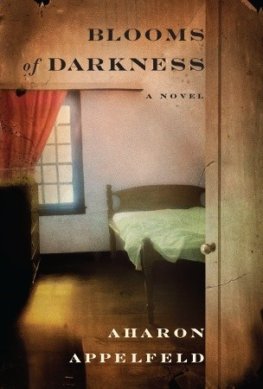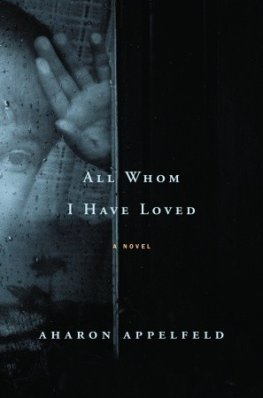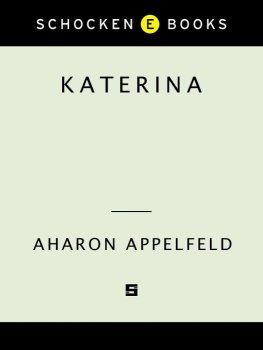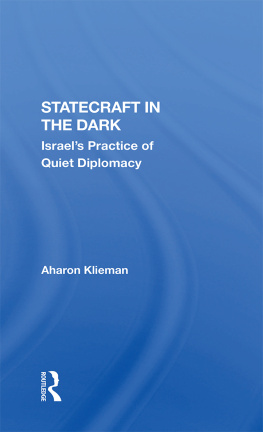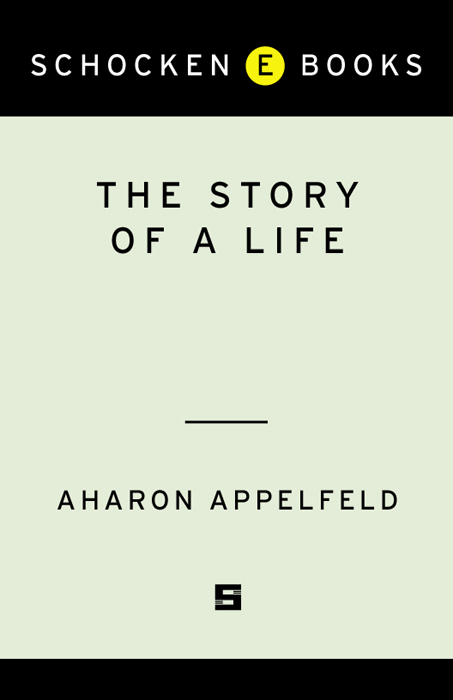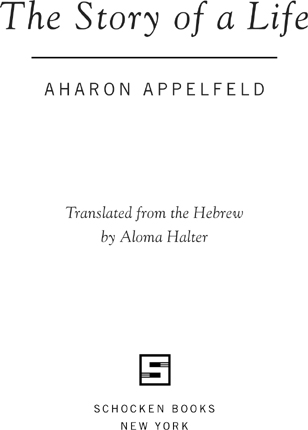Preface
THE PAGES BEFORE YOU are segments of contemplation and memory. Memory is elusive and selective; it holds on to what it chooses to hold on to. I wont say that it retains only what is good and pleasant. Very like a dream, memory takes specific details out of the viscous flow of eventssometimes tiny, seemingly insignificant detailsstores them deeply away, and at certain times brings them up to the surface. Like a dream, memory also tries to imbue events with some meaning.
Ever since my childhood, I have felt that memory is a living and effervescent reservoir that animates my being. When I was still a child, I would sit and visualize the summer holidays at my grandparents home in the country. For hours Id sit by the window and picture the journey there. Everything that I recalled from previous vacations would return to me in the most vivid way.
Memory and imagination sometimes dwell together. In those long-buried years it was as if they competed. Memory was tangible, as if solid. Imagination had wings. Memory pulled toward the known, and imagination sailed toward the unknown. Memory always brought me pleasure and tranquillity. Imagination would take me from place to place, but eventually would depress me.
At times I learned that there are people who live solely by the power of imagination. My uncle Herbert was like that. He had inherited considerable wealth, but because he lived in a world of imagination, he wasted everything and was completely impoverished. When I got to know him better, he was already a poor man, living off the goodwill of his family, but even in his poverty he did not cease to dream. His gaze would be fixed far beyond you, and he always spoke about the future, as if the present or the past didnt exist.
Its amazing how clear even my most distant and hidden childhood memories can be, in particular those connected to the Carpathian Mountains and the broad plains stretching out at their foothills. During those last vacations before the war, our eyes would devour the mountains and plains with a fearsome longing, as if my parents knew that these were the last holidays, and that from now on life would be hell.
When World War II broke out, I was seven years old. The sequence of time became confusedno more summer and winter, no more long visits to my grandparents in the country. Our life was now crammed into a narrow room. For some time we were in the ghetto, and at the end of autumn we were thrown out of it. For weeks we were on the road, and then, eventually, in the camp, from which I managed to escape.
During the war I was not myself, but like a small creature that has a burrow, or, more precisely, a few burrows. Thoughts and feelings were greatly constricted. In truth, sometimes there welled up within me a painful sense of astonishment at why I had been left alone. But these reflections would fade with the mists of the forest, and the animal within me would return and wrap me in its fur. Of the war years I remember little, as if they were not six consecutive years. Its true that sometimes images surface from the heavy mist: a dark figure, a hand that had been charred, a shoe of which nothing was left but shreds. These pictures, sometimes as fierce as the blast from a furnace, fade away quickly, as if refusing to reveal themselves, and again theres the same black tunnel that we call the war. This is the limit of conscious memory. But the palms of ones hands, the soles of ones feet, ones back, and ones knees remember more than memory. Had I known how to draw from them, I would have been overwhelmed with what I have seen. On some occasions I have been able to listen to my body, and then I would write a few chapters, but even they are just fragments of a pulsing darkness that will always be locked inside me.
After the war, I was on the Italian coast for some months and then spent some time on the Yugoslavian coast. Those were months of wonderful oblivion. The water, the sun, and the sand kneaded and soothed us until nightfall. And at night we would sit by the fire, frying fish and drinking coffee. Roaming around the beaches were all kinds of people who had been affected by the war: musicians, jugglers, opera singers, actors, gloomy fortune-tellers, smugglers, and thieves. Among this motley crowd there were also child artists, only six or seven years old, who were adopted by corrupt managers who would drag them around from place to place. Every night there would be a performance, sometimes even two.
Then oblivion constructed its deeply fortified basements, and soon after that, we took them to Palestine. When we arrived there, oblivion was already solidified in all of us. From this standpoint, Israel was a kind of continuation of Italy. Oblivion found fertile ground. Of course, the ideology prevalent in those years aided and abetted this locking up of memory, but the command to erect walls did not come from the outside only. Sometimes things Id seen during the war would slip through from the walled-in basements of memory, demanding the right to exist. But they did not have the power to bring down the pillars of oblivion and the will to live. And life itself said then: Forget! Be absorbed! The kibbutzim and the various youth villages were veritable greenhouses for cultivating oblivion.
For many years I was sunk deep within the slumber of oblivion. My life flowed on the surface. I grew used to the cramped and moldy basements within me. True, I was always afraid of them. It seemed to me, not without reason, that the dark creatures seething there were growing stronger, and that someday, when the place became too narrow for them, they would burst out onto the surface. And, indeed, such outbursts did occur from time to time, but the powers of suppression held them in, and the basement was again shut up under lock and key.
For how many years did this continuethis distance, this division from there to here, from below to above? The story of this struggle is in these pages, and it stretches across a broad canvas: memory and oblivion, the sense of chaos and impotence on one side and the desire for a meaningful life on the other. This is not a book that asks questions and responds to them. These pages are a description of a struggle, if one can borrow Kafkas expression. All aspects of the soul join in this struggle: the memory of home and of parents, the sheer pastoral beauty of the Carpathians, my grandparents, and the many lights that streamed into my soul. After them came the war and all the destruction it wrought, and the scars that it left. And, finally, the long years in Israel: working the land, learning the language, overcoming the confusion of youth, attending university, and beginning to write.
This book is not a summary, but an attempt (and perhaps a desperate attempt) to integrate the different parts of my life and to reconnect them to the wellsprings of their being. The reader should not expect a sequential and precise account in this story of a life. These are the regions of my life that have been packed together in memory, and they are alive and pulsating. Much has been lost and much corroded by oblivion. At first it seemed that very little remained, and yet, when I laid one piece alongside another, I saw that not only have they been made whole by the years, but they have even achieved some level of meaning.




